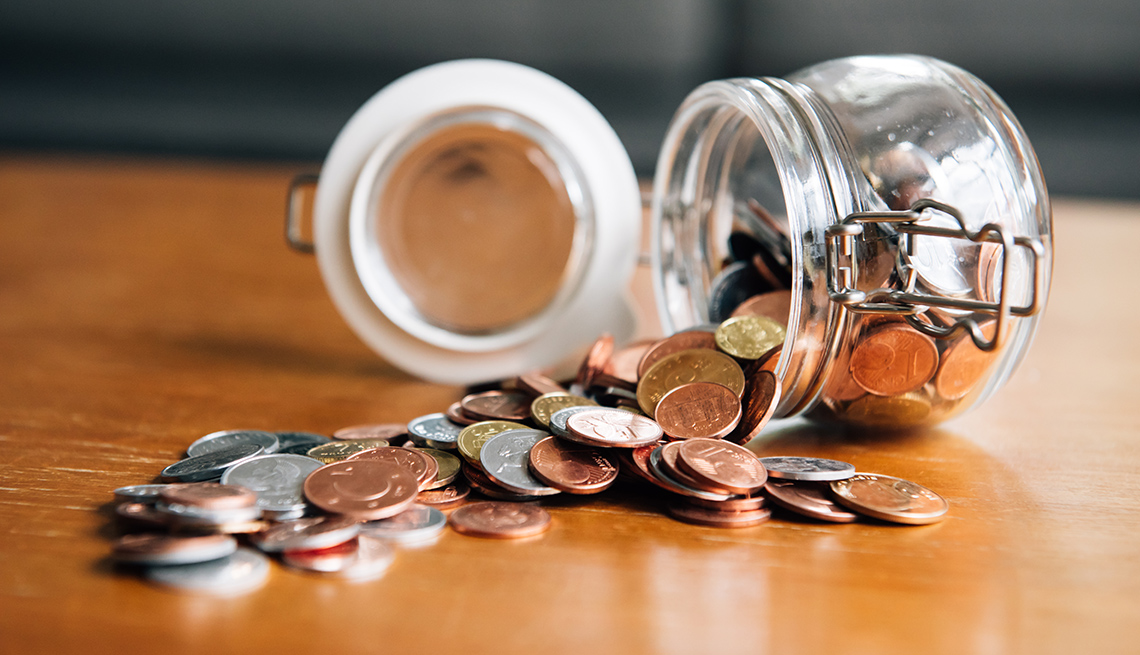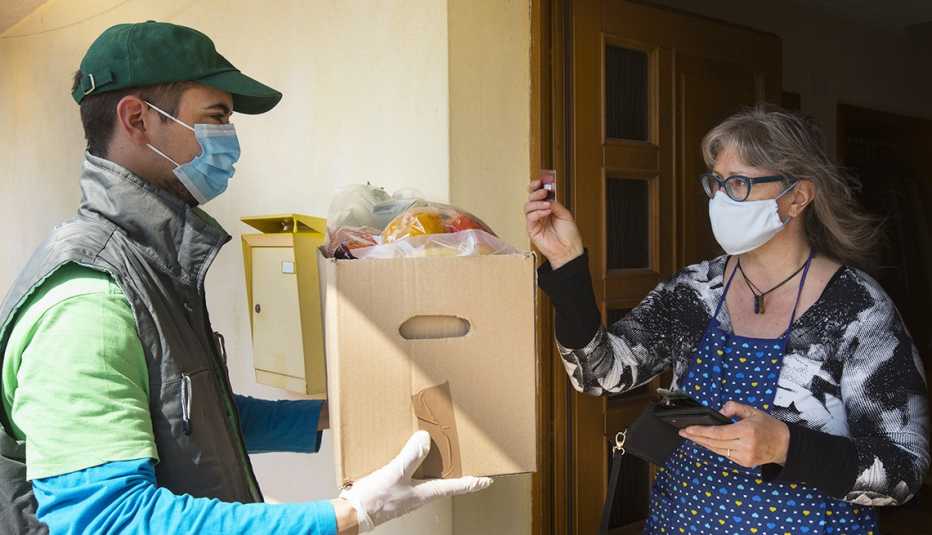AARP Hearing Center
Flour and toilet paper may be back on store shelves, but now shoppers across the U.S. are encountering another coronavirus-related shortage — an unexpected dearth of coins in circulation, making it difficult for clerks to provide change after cash purchases.
With the pandemic slowing production at the U.S. Mint and keeping consumers, and their coins, at home throughout the spring, stores are finding themselves strapped for quarters, dimes, nickels and pennies and taking unusual measures to avoid parting with them.
Major retailers like Walmart, 7-Eleven and Lowe's are asking customers to pay with plastic or use exact change whenever possible. Other stores are offering to load shoppers’ change onto loyalty cards or convert it into charitable contributions. Some have even asked customers to bring in coins they've accumulated at home and trade it for cash or a gift card.
"We haven't not given change yet,” says Kent Couch, owner of the Stop and Go Mini Mart and Shell station in Bend, Oregon. “We've managed to survive so far, but we don't know how much longer."
Couch's busy store, which does about 3,000 customer transactions a day, normally gets $700 worth of change from the local bank every week. But now, due to the shortage, he has to make a single roll of coins for each denomination last every day from Monday through Friday, which works out to $87.50 a week.
'A perfect storm'
Convenience stores have been particularly hard hit. About 40 percent of the 130 million in-store transactions they conduct each day are in cash, according to Jeff Lenard, vice president of strategic industry initiatives at the National Association of Convenience Stores.
Wawa, Pilot, QuikTrip and Speedway are among chains offering store credit or asking customers to round up bills for charity to limit change return, the association says. Some 7-Eleven stores are offering a free Slurpee to people who bring $5 in coins to trade for cash, the company said in an email statement.
"It was something that came along without warning,” Lenard says of the shortage. “We have heard from retailers who are saying that some of their stores are completely out of coins and others are within a day's supply."
It's not that there are suddenly fewer coins. There were an estimated $47.8 billion worth of coins in the national money supply in April, according to U.S. Mint spokesman Michael White. That's up from $47.4 billion in coins a year earlier.
The biggest problem is that not enough coins are in circulation. They normally cycle through the U.S. economy, going from stores’ cash drawers into the pockets and purses of consumers, who in turn spend them, take them to local banks or trade them for paper currency or gift cards at supermarket coin machines.


































































